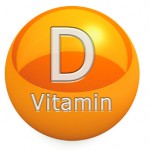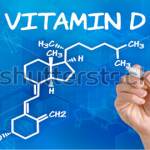Interestingly, Dr. Christakos noted that 1,25-dihydroxy-vitamin D suppresses diabetes, experimental autoimmune encephalomyelitis (EAE)—the multiple sclerosis (MS) equivalent in mice—and inflammatory bowel disease (IBD) in mouse models. The mechanisms by which vitamin D ameliorates these diseases remain quite unknown, as well as whether this can reverse the effects of EAE. However, there are tantalizing hints that interleukin 17 (IL-17) may be downregulated by vitamin D treatment, which may be contributory. A separate in vitro study combining 1,25-dihydroxy-vitamin D with interferon-beta also showed a cooperative effect of decreasing IL-17. Unfortunately, human studies have not shown a utility for IL-17 inhibitors for multiple sclerosis.
Dr. Christakos noted that vitamin D and 1,25-dihydroxy-vitamin D can suppress colitis in a genetically predisposed mouse model of IBD. In genetically engineered mice lacking Rab11a, mice treated with 1,25-dihydroxy-vitamin D had restoration of pathologic chances as well as decreased IL-6 and IL-1-beta in the ileum. Although these are mouse models, human beings may have similar mechanisms.
Infection Reduction
Margherita Cantorna, PhD, distinguished professor of molecular immunology at Pennsylvania State University, University Park, also discussed how vitamin D affects immune responses to pathogens. In pregnant women, vitamin D deficiency and VDR deficiencies affect immune progenitors likely through vitamin D signaling. Moreover, vitamin D may have a regulatory effect on the microbiome in neonates. Vitamin D-sufficient animals tend to have more diverse microbes, greater epithelial barrier function and local immune responses. Indeed, vitamin D may help to “regulate the balance between anti- and pro-inflammatory responses” by supporting cells that create IL-10 and decreasing cells that produce IL-17 and interferon gamma.
On a more holistic level, clinical trials have not shown an effect of vitamin D replacement on reducing or preventing respiratory infections. However, raising 25-hydroxyvitamin D (25(OH)D) reduces inflammation, which may help protect the host from infection. In mice models, offspring born to mothers with lower vitamin D have lower VDR levels, which lead to increased susceptibility to influenza. Importantly, supplementation with vitamin D restores vitamin D status but susceptibility to influenza remains.
Altogether, it suggests that vitamin D is a fine-tuner of the immune system, not a hammer.

Samantha C. Shapiro, MD
Samantha C. Shapiro, MD, is a clinician educator who is passionate about the care and education of rheumatology patients. She writes for both medical and lay audiences and practices telerheumatology.
References
- Beretich BD, Beretich TM. Explaining multiple sclerosis prevalence by ultraviolet exposure: A geospatial analysis. Multiple Sclerosis. 2009;15(8).
- Kriegel MA, Manson JAE, Costenbader KH. Does vitamin D affect risk of developing autoimmune disease? A systematic review. Semin Arthritis Rheum. 2011;40(6).
- Manson JE, Cook NR, Lee IM, et al. Vitamin D supplements and prevention of cancer and cardiovascular disease. N Engl J Med. 2019;380(1).
- Hahn J, Cook NR, Alexander EK, et al. Vitamin D and marine omega 3 fatty acid supplementation and incident autoimmune disease: VITAL randomized controlled trial. The BMJ. 2022;376.
- Costenbader KH, Cook NR, Lee IM, et al. Vitamin D and marine n-3 fatty acids for autoimmune disease prevention: Outcomes two years after completion of a double-blind, placebo-controlled trial. Arthritis Rheumatol. 2024;76(6).
- Zheng R, Gonzalez A, Yue J, et al. Efficacy and safety of vitamin D supplementation in patients with systemic lupus erythematosus: A meta-analysis of randomized controlled trials. Am J Med Sci. 2019;358(2).
- Al-Saoodi H, Kolahdooz F, Andersen JR, Jalili M. Effect of vitamin D on inflammatory and clinical outcomes in patients with rheumatoid arthritis: A systematic review and dose–response meta-analysis of randomized controlled trials. Nutr Rev. 2024;82(5).


